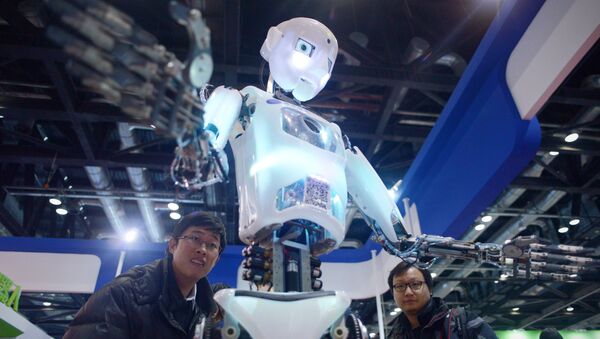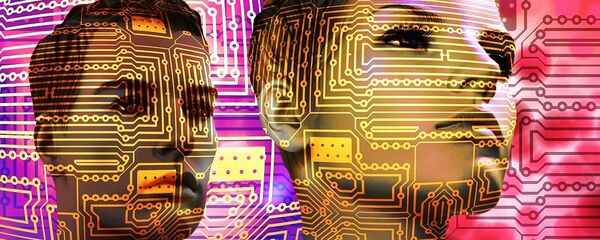Vardi, a computer science professor at Rice University in Houston, told the American Association for the Advancement of Science (AAAS) that, "We are approaching a time when machines will be able to outperform humans at almost any task." He added, "I believe that society needs to confront this question before it is upon us: if machines are capable of doing almost any work humans can do, what will humans do?"
Vardi told Sputnik his remarks to the AAAS were meant to dramatize the situation, but his concern about the America’s economic future is real.
"Productivity in the past 20 years has doubled," Vardi said, "The average wage for unskilled workers adjusted for inflation, is the same level it was in 1968."
He noted the oft-cited concern that American manufacturing has shifted to China, but says in reality that America and China are nearly comparable, in terms of productivity, but because of automation in America, "in terms of the number of employees, we are below where we were in the late 1940s. We have lost half of the manufacturing jobs in the United States."
Economists Laurence Kotlikoff of Boston University and Jeffrey Sachs of Columbia University have noted this troubling trend. In a 2012 paper to the National Bureau of Economic Research entitled, "Smart Machines and Long-Term Misery," Kotlikoff and Sachs say, "Smart machines now collect our highway tolls, check us out at stores, take our blood pressure, massage our backs, give us directions, answer our phones, print our documents, transmit our messages, rock our babies, read our books, turn on our lights, shine our shoes, guard our homes, fly our planes, write our wills, teach our children, kill our enemies, and the list goes on."
The paper concludes that the benefits of technological advancement in America tend to be one-sided.
"Even if economists have been reluctant to view machines, be they drones or microprocessors, as dangerous competitors, those whose jobs have been lost to machines are facing a terrible time finding employment that pays a decent wage. In contrast, those who own the machines or have the skills to design and run the machines are having no trouble capitalizing on the mechanized misery of the masses." the paper stated.
Vardi suggested that increasing automation and the concurrent shift in organized labor’s political landscape has left many livelihoods in its wake.
"They’re essentially stagnant," he said. "Unions have been weakened, as a result, workers have been standing still for almost 50 years."





